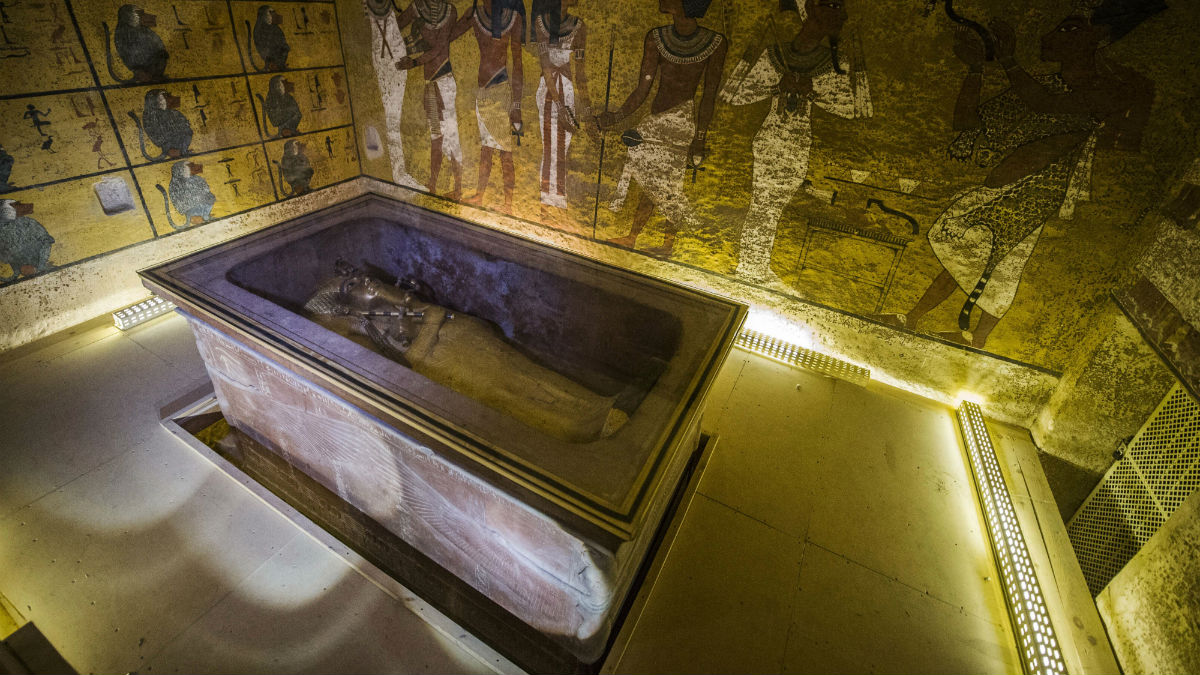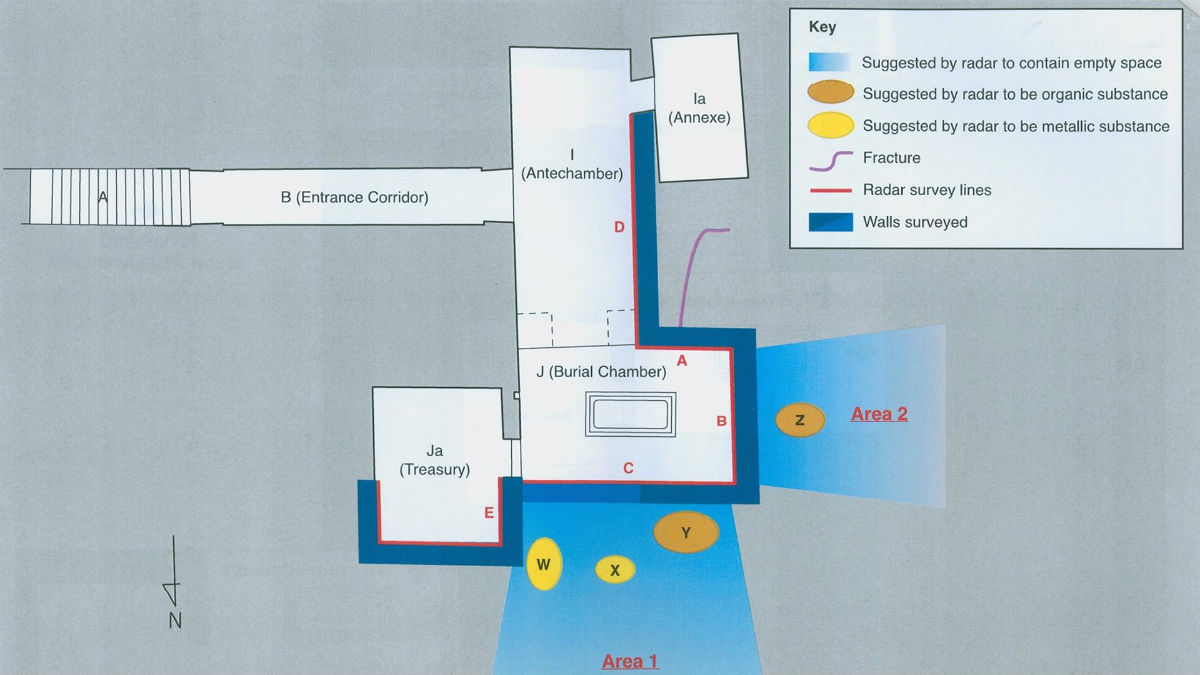King Tut's tomb may hold secret of Nefertiti's burial chamber
Hidden rooms 'could be the discovery of the century' and unearth final resting place of the legendary queen

A free daily email with the biggest news stories of the day – and the best features from TheWeek.com
You are now subscribed
Your newsletter sign-up was successful
Archaeologists working on Tutankhamun's tomb in Egypt believe they have discovered two secret rooms that could be the burial chamber of the legendary Queen Nefertiti.
Radar scans of the burial site showed a high probability of two additional rooms concealed behind the main complex. The findings suggest the existence of a hidden door, covered by a wall painted over with hieroglyphs, and the presence of both metallic and organic matter inside the unexplored chambers.

Plan showing the location of the rooms next to Tutankhamun's tomb. Credit: Ministry of Antiquities
The Week
Escape your echo chamber. Get the facts behind the news, plus analysis from multiple perspectives.

Sign up for The Week's Free Newsletters
From our morning news briefing to a weekly Good News Newsletter, get the best of The Week delivered directly to your inbox.
From our morning news briefing to a weekly Good News Newsletter, get the best of The Week delivered directly to your inbox.
Scientists are investigating a theory put forward last October by British Egyptologist Dr Nicholas Reeves, who believes murals inside the tomb indicate that the queen's remains lie somewhere within.
Nefertiti, who is thought to have died around seven years before Tutankhamun, was the chief wife of the boy king's father, Akhenaten. A sculpture of her, dating back to 1345BC, has become one of the most recognisable artefacts of Ancient Egypt, possibly only second to the death mask of Tutankhamun himself.
Egypt's antiquities minister, Dr Mamdouh Eldamaty, told a press conference he was now "more than 90 per cent" certain that the chambers are there.
"Maybe it could be the lady of the family, as Reeves has said," he said, adding that any mummies found could also be those of Kiya, who is thought to have been Tutankhamun's mother, or his half-sister, Ankhesenamun.
A free daily email with the biggest news stories of the day – and the best features from TheWeek.com
Whatever or whoever lies within the site at the historic Valley of the Kings, the discovery of two untouched chambers would be a hugely significant find.
"It could be the discovery of the century," Eldamaty added. "It is very important for Egyptian history and for all of the world."
More advanced scans will be carried out before archaeologists can consider unsealing the hidden rooms.
However, some experts have expressed concerns about disturbing the remains - not due to fears of King Tut's curse, but because of the damage digs could inflict on the site.
"Sometimes, it's best to just leave them in the ground," archaeologist Michael Jones, of the American Research Centre in Egypt, told The Guardian. "Archaeology is a process of controlled destruction. Unless there's a real threat, the best thing might be to leave something where it is."
-
 The Olympic timekeepers keeping the Games on track
The Olympic timekeepers keeping the Games on trackUnder the Radar Swiss watchmaking giant Omega has been at the finish line of every Olympic Games for nearly 100 years
-
 Will increasing tensions with Iran boil over into war?
Will increasing tensions with Iran boil over into war?Today’s Big Question President Donald Trump has recently been threatening the country
-
 Corruption: The spy sheikh and the president
Corruption: The spy sheikh and the presidentFeature Trump is at the center of another scandal
-
 Epstein files topple law CEO, roil UK government
Epstein files topple law CEO, roil UK governmentSpeed Read Peter Mandelson, Britain’s former ambassador to the US, is caught up in the scandal
-
 Iran and US prepare to meet after skirmishes
Iran and US prepare to meet after skirmishesSpeed Read The incident comes amid heightened tensions in the Middle East
-
 Israel retrieves final hostage’s body from Gaza
Israel retrieves final hostage’s body from GazaSpeed Read The 24-year-old police officer was killed during the initial Hamas attack
-
 China’s Xi targets top general in growing purge
China’s Xi targets top general in growing purgeSpeed Read Zhang Youxia is being investigated over ‘grave violations’ of the law
-
 Panama and Canada are negotiating over a crucial copper mine
Panama and Canada are negotiating over a crucial copper mineIn the Spotlight Panama is set to make a final decision on the mine this summer
-
 Why Greenland’s natural resources are nearly impossible to mine
Why Greenland’s natural resources are nearly impossible to mineThe Explainer The country’s natural landscape makes the task extremely difficult
-
 Iran cuts internet as protests escalate
Iran cuts internet as protests escalateSpeed Reada Government buildings across the country have been set on fire
-
 US nabs ‘shadow’ tanker claimed by Russia
US nabs ‘shadow’ tanker claimed by RussiaSpeed Read The ship was one of two vessels seized by the US military